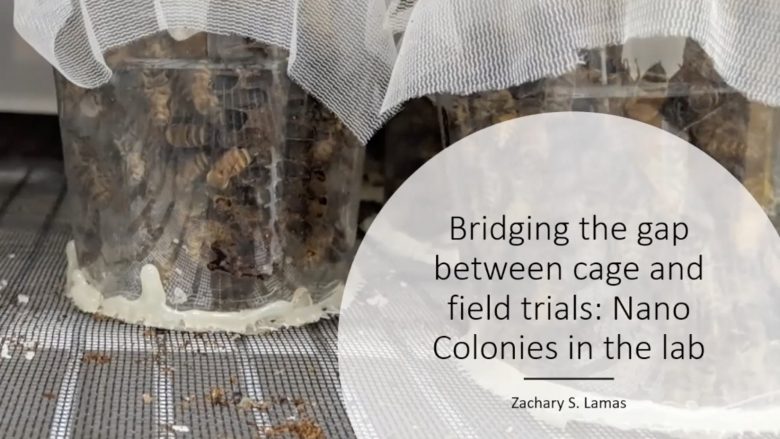In April, Zac Lamas, a beloved UMD PhD student in the Hawthorne Lab, gave the DC Beekeepers a talk on a cool new approach to bringing field trials into the lab, and why this matters to beekeepers. Zac used his guest room bathroom over the pandemic to create "Nano Colonies."
Zac studies Varroa destructor biology and behavior, and how that drives viral transmission in our colonies. He has had a side project for a while now, one needed to look at the questions he is studying, but he realized he might be able to make a tool that could be used later for other areas, like pesticide research.
He created Nano Colonies, tiny 100-bee queen right colonies that actually function, to help bridge the practice of research in the field and in the lab. In the lab, bee researchers have used small groups of bees in artificial arenas for long time, but then the story ends and it's hard to ask questions about what comes after. To continue to function as a colony, however, and display normal behaviors that can then be influenced by experimentally changing one or another factor...well, that is just plain cool, as well as affordable and scalable!
Both the Montgomery County Beekeepers (a lot) and the DC Beekeepers Alliance (a little) have given financial support for Zac's work, in part because it is inspirational and in part because it has so much potential for our future understanding of our bees and science about them.
Watch how Zac developed these colonies-in-a-cup, and what he is doing with it right now!

